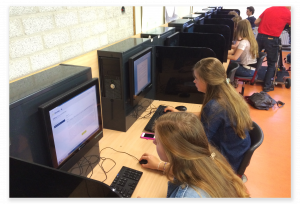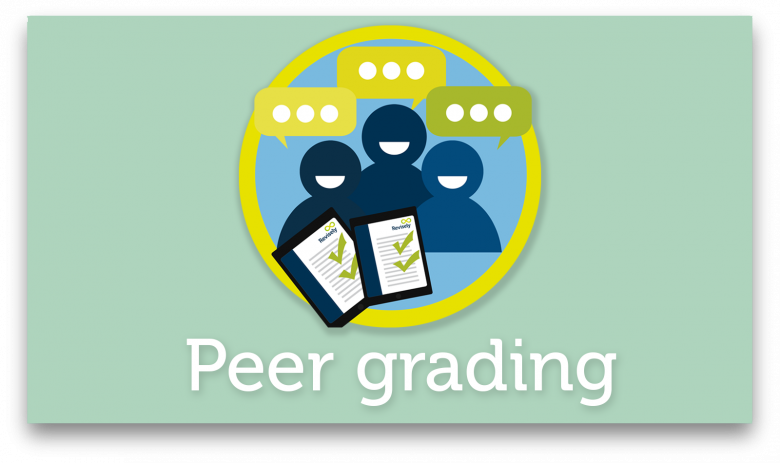The value of peer grading
As an educational software development company, we are always thinking about how to improve education. How do we prepare 21st century students for the future world? And how can Revisely, the online correction and feedback tool, support them best within this process?
21st century skills
We believe one of the most important tasks for teachers is to educate critically thinking students. Today we live in an environment full of technology and media with access to endless forms of information. This makes it very important for students to be able to create, evaluate, and effectively utilize information, media, and technology. Students need to be engaged with the study material and teachers need to encourage them to ask questions and argue for their opinions. Receiving valuable feedback in this process is necessary in order to keep on growing and learning.

Peer grading
At Revisely, we want to help teachers to give more insightful feedback to improve a student’s learning. The built-in set of observations in Revisely include tips on how to improve writing skills. By generating all this extra feedback, the student’s learning efficiency is increased. Therefore, we strongly believe in the power of feedback and decided to expand Revisely’s features further with peer grading. Having the importance of the 21st century skills in mind, we want to challenge the traditional view of teachers being the sole feedback givers by letting students partake in giving feedback to each other. Let me tell you about the advantages:
- More feedback
By introducing peer grading as a new tool within Revisely’s correction application, students are able to learn from the review process itself and receive more feedback from their peers and teachers. A peer assessment is not solely a process by which peers determine grades for one another. The value lies in the extra amount of feedback and learning from other possible solutions.
- More knowledge
In a lot of recent learning theories is assumed that learning mostly occurs through social interaction. When students evaluate the work of their peers they memorize things better and acquire new knowledge. The reason for this is that when students give feedback themselves, they need to be able to understand the study material and reflect on it. Therefore, students not only learn from viewing the hand-in from their peers point of view, but students also start to understand the material from a teacher’s point of view. Next to that, students can notice strengths in their peers’ work and learn where their own assignment has weaknesses.
- More engagement
Having some ownership of the assessment process increases motivation with the subject. In doing so, students might be encouraged to increase their learning. They get a better understanding and insight into their own approach in comparison to that of their peers.
In all, using the new option of peer grading in Revisely offers a way to engage students with the study material. It encourages critical thinking and provides, besides the already built-in comments in Revisely, even more feedback. Learning is not only about acquiring knowledge. It is also about developing competences. Developing abilities in order to succeed in this information age, the so called 21st century skills.
Curious about the new improved version of Revisely and our new peer grading feature?
Read more or just try using it yourself via our website (for free!)

